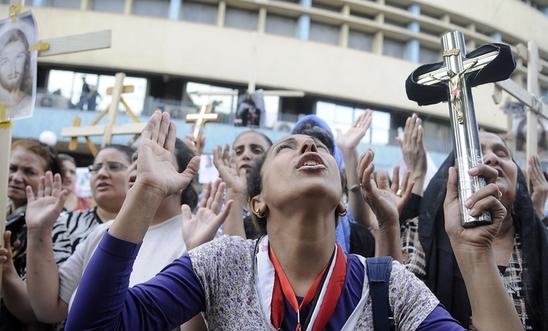Bottom Line Up Front
- On November 4, Egyptian officials announced they had killed 19 militants in the aftermath of an attack on Coptic Christians in Egypt.
- On November 2, attackers ambushed 3 buses carrying Coptic Christians south of Cairo, killing seven people; the Islamic State affiliate claimed responsibility.
- In May 2017, Islamic State militants killed 28 Copts at the same location, a sign of the persistent inability of the government and military to secure the area and protect the local population.
- For years, militants and terrorists have targeted Egypt’s sizable minority Christian population with attacks, including by conducting several suicide bombings in churches.
The so-called Islamic State, as well as al-Qaeda, thrive off of a persecution narrative in which they are the sole protectors of true believers in a world completely against them. Of course, the actions of these groups run counter to their narrative, killing and intimidating all of those it considers its enemies, which is essentially everyone but them. The persecution of minority populations is a hallmark of the Islamic State. The group has been relentless in its barbaric attacks on the Yazidi and Shia in Iraq and the Coptic Christians in Egypt. Since the time of Abu Musab al-Zarqawi, the founder of IS’s predecessor, al-Qaeda in Iraq, the group has made sectarianism the centerpiece of its strategy.
On November 2, militants opened fire on three buses carrying Coptic pilgrims from the Monastery of St. Samuel in the Minya governorate south of Cairo. The attackers murdered seven people and injured 19 more. Soon after the attack, the Islamic State claimed credit, saying the attack was retaliation for the arrest of ‘chaste sisters.’ The Egyptian government said the attack only showed the group’s weakness, a meaningless claim used by many governments when faced with a persistent terrorist or insurgent threat despite massive efforts to quell it.
On November 4, in the aftermath of the attack, the Sisi government stated it had killed 19 militants. The government released photographs of the dead but offered few details other than that the militants had been killed in the mountains near the monastery attack. What is clear is that the Islamic State affiliate in Egypt is capable of continued attacks on the Copts, while the Egyptian government struggles to protect its citizens. Moreover, the IS-affiliate has metastasized throughout other parts of Egypt, despite a significant military campaign by Egyptian forces to diminish the group. The Islamic State’s Sinai wilaya (state/affiliate) is perhaps the group’s most serious threat to regional security, along with its branch in Libya, outside of Iraq and Syria.
There is noticeable anger at the government after this latest attack on the Coptic community in Egypt. The Monastery of St. Samuel was also the same location of an attack in May 2017 in which Islamic State militants murdered 28 people. On Palm Sunday in 2017, the Islamic State used suicide bombers to kill worshipers in the St. George’s Church in Tanta and the St. Mark’s Coptic Cathedral in Alexandria. The attacks killed 30 people in Tanta and 17 in Alexandria, respectively, and wounded more than a hundred more. A December 11, 2016 an Islamic State suicide attack on a Coptic cathedral in Cairo killed 28 people. This followed attacks in 2010 and 2011 by the al-Qaeda affiliate that targeted Coptic Christians, killing dozens more.
The threat posed by groups like the Islamic State and al-Qaeda in Egypt will continue, and likely worsen, as the government struggles against what is a highly capable and entrenched insurgency in the Sinai that has the ability to launch spectacular attacks in Cairo and beyond. Protecting vulnerable minority communities remains a serious challenge for governments, not just in Egypt but also in Pakistan, Iraq, Syria, and across the region. Some question not just the capabilities of these governments, but also their political will, especially if these minority groups are perceived to be a political opposition force. Conducting a counterinsurgency that can militarily diminish well-armed groups without creating more enemies in the process is something every military, including the United States, struggles with. Addressing the historic and current persecution of minority populations is a global challenge that needs better-supported local solutions and the parsimonious use of force, in conjunction with development and police and intelligence-led operations aimed to separate the insurgents from the population.

